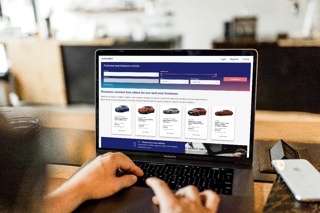The upcoming budget on November 22 must be one of the most eagerly anticipated in the past 20 years.
With so much uncertainty around key issues for the fleet industry – from company car taxation to the treatment of travel expenses and advisory fuel rates (AFRs) – as well as wider market and political concerns, businesses and fleet decision makers are looking to the Chancellor for clarity.
We need certainty about the taxation framework for strategic decisions on fleet and mobility, not just for the next two or three years but for the next couple of change cycles.
This is what businesses and industry have been seeking, but I’m not entirely sure we will get it.
Thinking more ‘short to medium’ term, I would like to see three immediate measures which would be beneficial to the UK‘s businesses, employees, the economy and our environment.
Firstly, we need to recognise the importance of the company car population in the UK not only in terms of tax revenue we generate, but also their role in driving ULEV uptake – significantly outperforming retail and private buyers in this respect.
Employees leaving company car schemes simply don’t have the same incentives to ‘do the right thing’ in terms of emissions.
Let’s also not forget the value of these newer, cleaner and safer company cars going into the used vehicle market in two to three years’ time.
Secondly, we need clarity on AFRs for electricity as a fuel – with battery electric and hybrids vehicles increasing in number in fleets it’s a real world fuel which HMRC doesn’t recognise.
In addition, we need clarity following the Government’s travel expenses consultation earlier this year and whether employees can claim mileage allowance relief (MAR) on underpayment of Approved Mileage Allowance Payments (AMAPs).
Finally and perhaps most importantly would be our request to bring forward the 2020/21 BIK rates for ULEVs, ideally to next year.
Currently we have a situation where due to higher P11D values of new electric and hybrid vehicles – a result of higher costs for the new technology – drivers could be paying 13% tax in 2018 and 16% tax in 2019 before the BIK rate drops in 2020 to 2%.
In our drive to increase take up of ULEVs – which absolutely has to take place in the context of faster charging methods and investment in wider access to the charging infrastructure – we need to consider whether the current tax rules actually provide a disincentive for ULEV adoption before April 2020.
By Simon Carr, chief commercial officer, Alphabet GB



















Login to comment
Comments
No comments have been made yet.